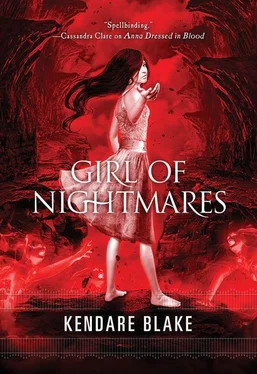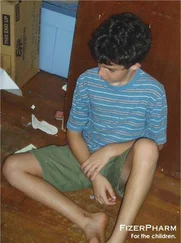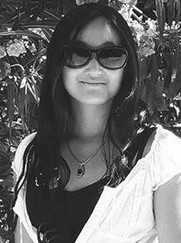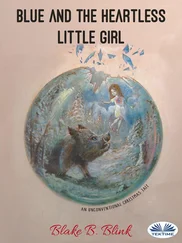“He didn’t answer. I left a message,” I reply. Carmel goes on a bit behind the wheel, about how she doesn’t like what Morfran said and something about having the willies, but I’ve only got half an ear on her. The other one’s on Thomas, who I think is still trying to hone in on the vibe Morfran got off the athame. From the look of near constipation on his face, I don’t think he’s having much luck.
“Let’s just get through the day,” Carmel says. “Another day of skating through the end of the year, and we’ll figure all this out later. Maybe we can hit up a different ghost this weekend.” She shakes her head. “Or maybe we should lay off everything for awhile. Until we hear from Gideon at least. Shit. I was supposed to do an inventory of the decorations for the hall before the Graduation Committee meeting.”
“You’re not even graduating this year.”
“Doesn’t mean I’m not on the committee.” She huffs. “So. Is that what we’re going to do? Lay off and wait for Gideon?”
“Or for Anna to come knocking again,” Thomas says, and Carmel gives him a look.
“Yeah,” I say. “I guess that’s what we should do.”
* * *
How did I get here? It wasn’t a conscious choice. At least it doesn’t feel that way. When Carmel and Thomas dropped me at home after school, the plan was to eat two servings of my mom’s spaghetti and meatballs and vegetate in front of the TV. So what am I doing in my mom’s car, four hours and I don’t know how many miles of highway behind me, staring at dormant smokestacks jutting up against a darkening sky?
This is something from the recesses of my memory, something that Daisy Bristol told me about only a month after Anna’s house imploded with her inside it. I’d listened with half an ear. I was in no condition to hunt, no condition to do much of anything but walk around with a hole in my center, wondering. Constantly wondering. The only reason I answered the phone was because it was Daisy, my loyal tipster from New Orleans, and because he had been the one to lead me to Anna in the first place.
“It’s a place in Duluth, Minnesota. A factory called Dutch Ironworks. They’ve been finding the remains of bums on and off for the last decade or so,” Daisy said. “They find them in batches, but I think that’s only because they rarely look. It takes someone reporting a broken window, or a bunch of drunk kids partying in the lot, before anyone does a walk-through. The factory’s been closed down since sometime in the sixties.”
I smiled then. Daisy’s tips are sketchy at best, constructed on flimsy and mostly nonspecific evidence. When I first met him, I told him to get more of the facts. He looked at me like a dog does after you take the last bite of your cheeseburger. For Daisy, there’s magic in not knowing. He gets excited over the possibilities in the spaces in between. New Orleans’ love affair with the undead is in his blood. I guess I wouldn’t have it any other way.
My eyes roam across the abandoned Dutch Ironworks, where something has been killing the homeless for at least a decade. It’s a sprawling set of brick buildings, with two enormously tall smokestacks. The windows are small and covered in dust and grime. Most of them have been boarded up. I might have to break something to get in. The athame flips lightly between my fingers, and I get out of the car.
As I walk around the building, long-dead grass whispers against my legs. Looking ahead, there’s a glimpse of the black, seething mass of Superior. Four hours of driving and that lake is still with me.
When I round the corner and see the door, hanging ajar with the lock broken, my chest tightens and my whole body starts to hum. I never wanted to be here. It didn’t hold any interest. But now that I am here, I can hardly catch my breath. I haven’t felt this tuned, this pulled-by-a-string, since I faced down the Obeahman. My fingers tingle around the knife handle and there’s the odd, familiar sensation that it is part of me, welded into my skin, down to the bone. I couldn’t let it drop if I wanted to.
The air inside the factory is sour but not stagnant. The place is home to countless rodents, and they move the air around. But it’s still sour. There’s death underneath the dust, death in every corner. Even in the rat shit. They’ve been feeding on things that are dead. But I don’t detect anything fresh; there won’t be a stinking bag of meat waiting for me around a corner, nodding a greeting with a falling-off face. What is it that Daisy said? When the cops find another set of bodies, they’re practically mummified. Bones and ash. They mostly just sweep them out the door and straight under the rug. Nobody makes a big fuss over it.
Of course they don’t. They never do.
I’ve come through the back and there’s no telling what part of the factory this used to be. Everything worth taking has been looted, and all that’s left is bare scraps of machinery I can’t identify. I walk down the hall, the athame out and at my side. There’s light enough coming through the windows and reflecting off things so I can see just fine. I pause at every doorway, using my whole body to listen, to smell strong rot, to feel out cold spots. The room on my left must’ve been an office, or maybe a small employee lounge. There’s a table pushed back toward the corner. My eyes zero in on what looks at first like the edge of an old blanket—until I see the foot sticking out of it. I wait, but it doesn’t move. It’s just a body, used up, nothing much left but raggedy skin. I walk past and let the rest stay hidden behind the table. I don’t need to see it.
The hallway opens up on a broad, high-ceilinged space. Ladders and catwalks link through the air, accompanying what look like rusted-out conveyor belts. At one end, a hulking black furnace sits dormant. Most of it has been torn apart, broken down for scrap, but I can still see what it was. So much must’ve been produced here. The sweat of a thousand laborers’ bodies has soaked into the floor. The memory of heat still lingers in the air, god knows how many years later.
The farther I get into the room, the more crowded it feels. Something is here, and its presence is heavy. My grip tightens around the athame. Any minute I expect the decades-dead machinery to jerk back to life. The scent of burning human skin hits my nostrils a fraction of a second before I’m knocked facedown against the dusty floor.
I flip myself over and get to my feet, swinging the athame in a wide arc. I expect the ghost to be right behind me, and for a second I think it fled and I’m in for another game of whack-a-mole or ghost-darts. But I still smell it. And I feel anger moving through the room in dizzying waves.
He’s standing at the far end of the room, blocking my way back to the hallway, as if I would try to run. His skin is black as a struck match, cracked and oozing liquid metal heat, like he’s covered by a cooling layer of lava. The eyes stand out bright white. I can’t make out from this distance whether they’re just white or if they have corneas. God I hope they have corneas. I hate that creepy weird-eye shit. But corneas or no corneas, there won’t be any sanity in them. All these years spent dead and burning have taken care of that.
“Come on,” I say, and flick my wrist; the athame is ready to stab or slice. There’s a faint pain on my back and shoulders, where he hit me, but I shrug it off. He’s coming closer, walking up slow. Maybe because he wonders why I’m not running. Or maybe because every time he moves, more of his skin cracks open and bleeds … whatever that red-orange stuff is that he’s bleeding.
This is the moment before the strike. It’s the intake of breath and the stretching out of a second. I don’t blink. He’s close enough that I can see he does have corneas now, bright blue, the pupils constricted in constant pain. His mouth hangs open, the lips mostly gone, cracked and peeled away.
Читать дальше












